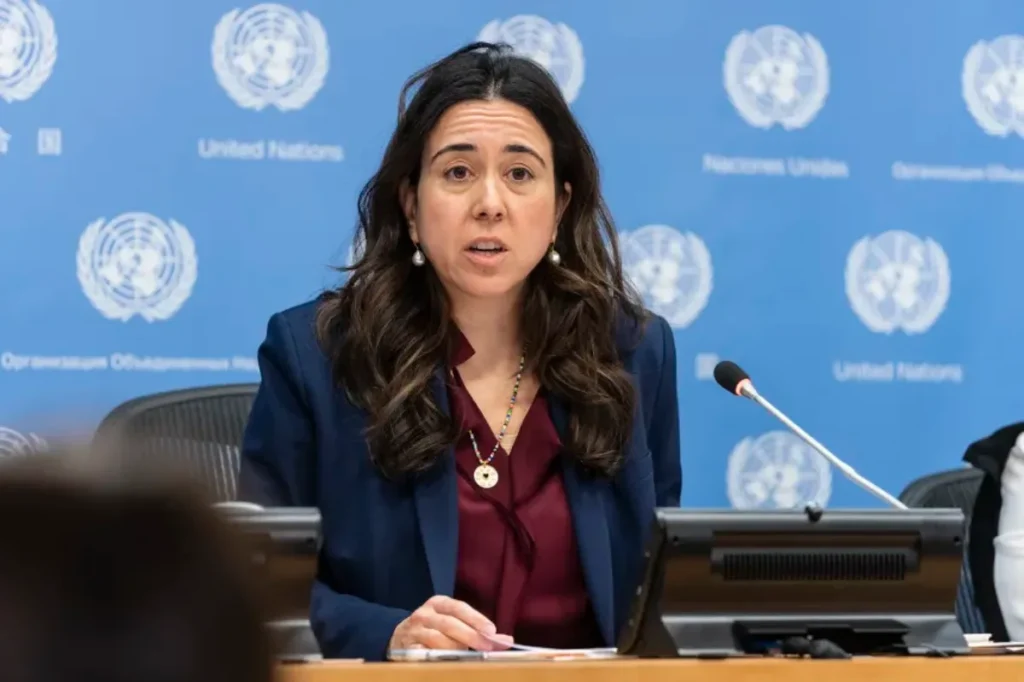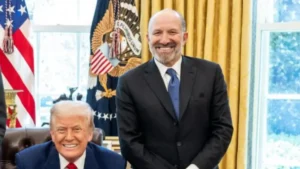The United Arab Emirates has delivered its strongest warning yet to Israel, saying any annexation of occupied West Bank territory would cross a “red line” and derail efforts to integrate Israel into the wider Arab world.

“Annexation in the West Bank would constitute a red line for the UAE,” said Lana Nusseibeh, Assistant Minister for Political Affairs at the UAE’s foreign ministry. “It would severely undermine the vision and spirit of the Abraham Accords, end the pursuit of regional integration, and alter the widely shared consensus on the future of this conflict – two states living side by side in peace, prosperity, and security.”
A Landmark Pact Under Strain
The UAE made history in 2020 as the first Arab nation in 26 years to normalize relations with Israel under the US‑brokered Abraham Accords. Bahrain and Morocco soon followed, and Abu Dhabi deepened trade, defense, and tourism ties with Israel. Prime Minister Benjamin Netanyahu has since pushed to expand the pact to other Arab states, especially Saudi Arabia.
While the UAE has criticized Israel before over its actions in Gaza and the West Bank, this latest statement – timed just before the fifth anniversary of the Accords – is its most forceful rebuke yet. It also casts doubt on the durability of one of US President Donald Trump’s signature foreign policy achievements.
Despite tensions, the UAE has kept diplomatic channels open during the Gaza war, even coordinating aid airdrops into the besieged territory. “From the very beginning, we viewed the Accords as a way to enable our continued support for the Palestinian people and their legitimate aspiration for an independent state,” Nusseibeh said. “That was our position in 2020, and it remains our position today.”
Annexation Plans Resurface
When the UAE signed the Accords, it did so on the condition that Israel suspend plans to annex parts of the West Bank – a move Abu Dhabi framed as a win for Palestinian statehood.
Israel captured the West Bank from Jordan in the 1967 war and began building Jewish settlements soon after. Today, about 3 million Palestinians live there, and they seek the territory – along with East Jerusalem and Gaza – for a future state, a goal backed by most of the international community.
Nusseibeh warned that current annexation proposals, reportedly under discussion in the Israeli government, are part of an effort to “bury the idea of a Palestinian state” – echoing recent remarks by far‑right Israeli Finance Minister Bezalel Smotrich.
Netanyahu Weighs His Options
Two Israeli officials told CNN that Netanyahu will meet top ministers on Thursday to decide how to respond to an expected wave of Palestinian statehood recognition by Western nations this month. France, Australia, Canada, Portugal, the UK, and others plan to back Palestinian statehood at the UN General Assembly, joining over 140 countries that already do.
The officials said Netanyahu is considering options ranging from annexing a few settlements to taking over Area C – about 60% of the West Bank. One prominent proposal is annexing the Jordan Valley, a strip along the Jordan River seen by many Israelis as a vital security buffer.
Far‑right ministers Smotrich and Itamar Ben Gvir, along with settler leaders, reject partial annexation and are pushing for full sovereignty over all areas without Palestinian populations – a move that would encircle Palestinian communities and make a contiguous state nearly impossible.
A Call for Restraint
“We call on the Israeli government to suspend these plans,” Nusseibeh urged. “Extremists, of any kind, cannot be allowed to dictate the region’s trajectory. Peace requires courage, persistence, and a refusal to let violence define our choices.”





